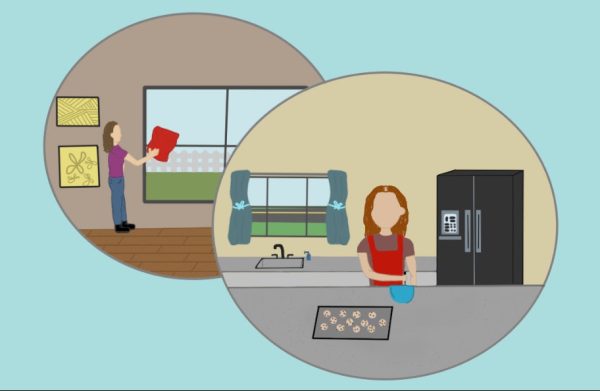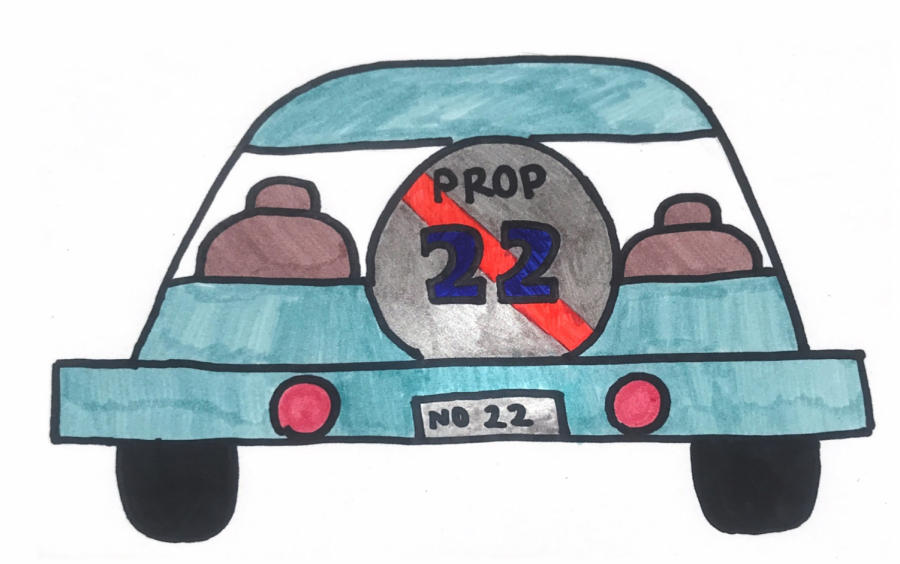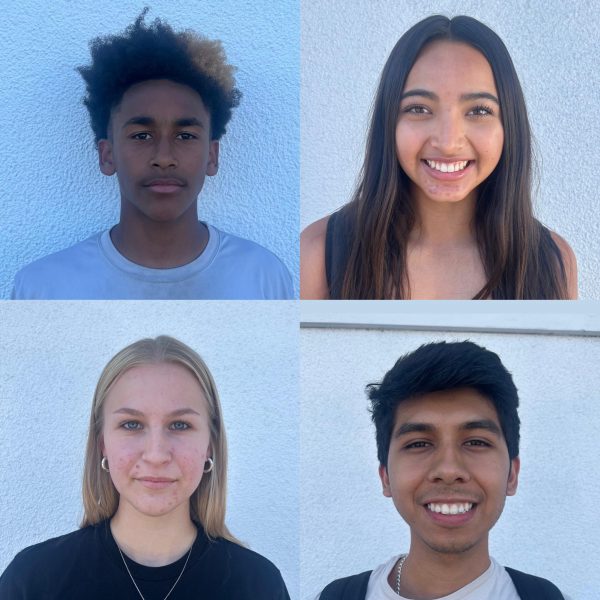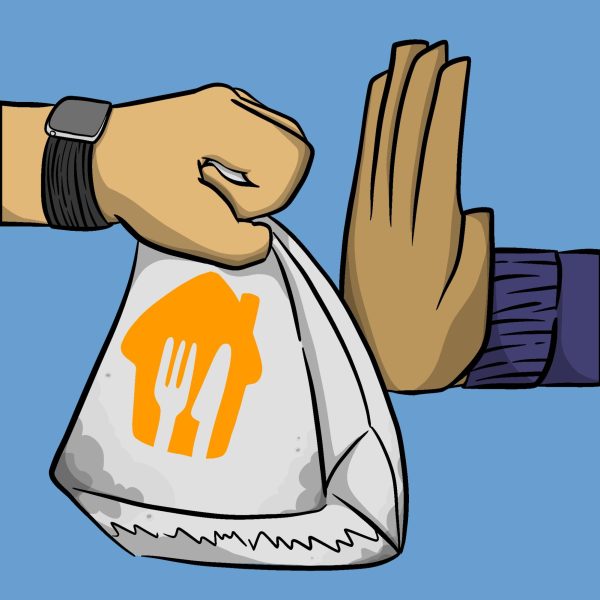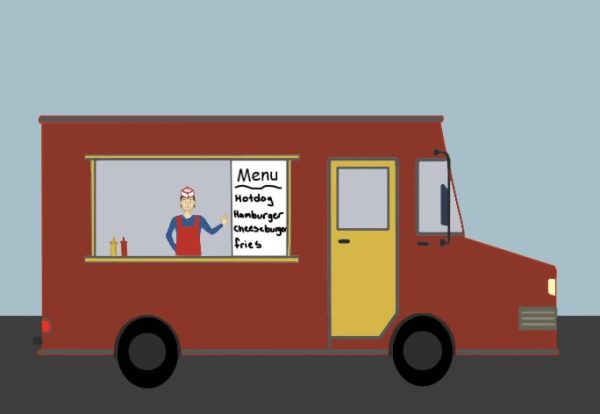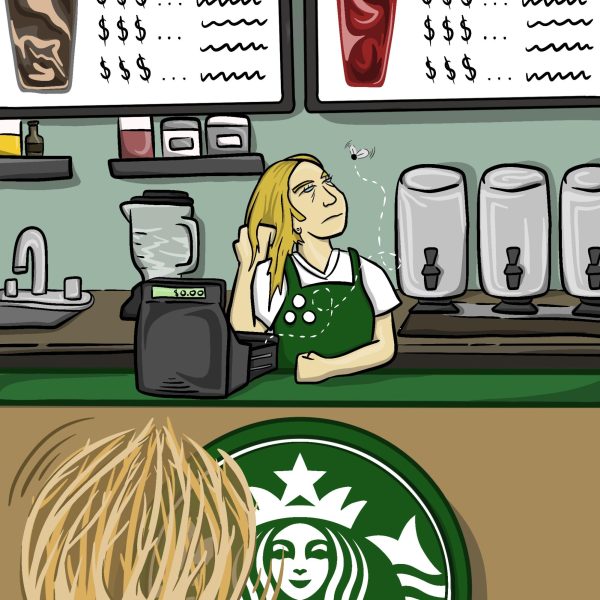In the driver’s seat
Prop 22 will be harmful for app-based drivers
This year’s election was filled with a lot of ups and downs. A never-ending waiting period with a surprise at every turn. One surprise that seemingly slipped under the cracks was Proposition 22. Although it was advertised as harmless legislation, it will ultimately harm the goodwill of our labor system in California.
According to California’s Official Voter Information Guide, the proposition classifies app-based drivers as “independent contractors,” instead of “employees,” and provides these independent-contractor drivers another form of compensation, unless certain criteria are met.
Although at face value, this seems like a generally beneficial piece of legislation to keep an easily accessible form of transportation in California. Companies like Uber and Lyft say that if Prop. 22 is not passed, they may not be able to afford to be in California, which in their eyes justifies spending millions of dollars in advertisements to push the vote towards a “yes”.
In spite of the fact that this would be inconvenient for those who use apps such as Uber or Lyft for transportation, there is one key element that is underplayed in their campaign for Prop. 22. That is, it establishes drivers as an independent class of workers and not as employees. Subsequently, they will have access to limited job benefits, along with a lower pay grade that is under the minimum wage and little labor protections.
Since this legislation has passed, it indicates that big app-based companies, namely Uber, Lyft, DoorDash, InstaCart and Postmates can disregard established California labor laws, which according to Gibbs Law Group, includes a minimum wage of $13 per hour, overtime pay and all-time spent working must be paid.
The proposition denies the rights and job benefits of drivers. For instance, sick leave, parental leave, health insurance, unemployment or being able to earn overtime when they drive more than 40 hours a week. These companies will continue to make a profit regardless of this proposition, but with Prop. 22, their profit will increase as they exploit their drivers’ loss of rights and protections.
These companies were once small and promising startups, but after they gained millions in profit and workers increased, they came under pressure and decided to cut corners, which meant that they demanded more from their workers for less and less money. This prompted Assembly Bill 5, which according to the Washington Post, was the law that provoked Prop. 22. It aimed to secure uncertain wages and establish worker protections.
Then stories started coming out; workers balancing impracticable schedules, barely keeping up and not being able to sustain with their limited pay. This is precisely what created the pressure to provide workers with higher wages and benefits, such as health care, vacation, and sick leave, essentially giving them rights as employees of million dollar companies, or otherwise known as the bare minimum. This pressure to provide workers with rights was only pushed further since the pandemic happened, as it became increasingly harder for drivers to work under restrictions.
These companies are fighting against labor laws that protect employees from unfair wages and treatment. The New York Times stated that the companies initially poured $90 million into their campaign and now that total is more than $200 million. This is the most that has ever been spent on a California ballot proposition. That speaks to how desperately these companies want to win to exploit people and make a profit.
This proposition has already passed. It went under voters’ noses as seemingly harmless legislation, but the impacts of it will be very prevalent in the years to come. These companies have escaped the clutches of California’s labor laws under a sneaky and clever excuse of a proposition. To put it simply, Californians were tricked by a 200 million dollar advertisement campaign that worked.
As students, we order off these apps because some of us can’t drive and want to eat from our local fast food restaurant. The only thought going through our heads when we order from one of these companies is only that of the arrival of our food, but not of the person delivering it. So, next time you order your lunch off an app, remember how unethical the treatment of their drivers is and how you are contributing to it by giving these companies more money. Remember that app-based drivers are people too, that deserve rights like anyone else.

I am a senior at Bonita Vista High and this is my second year on staff. I’ve always liked how unbiased and informative the crusader was and it was a...
I am a junior at Bonita Vista High, and a second year staff member on the Crusader. I love being able to meet new people, and having conversations with...



